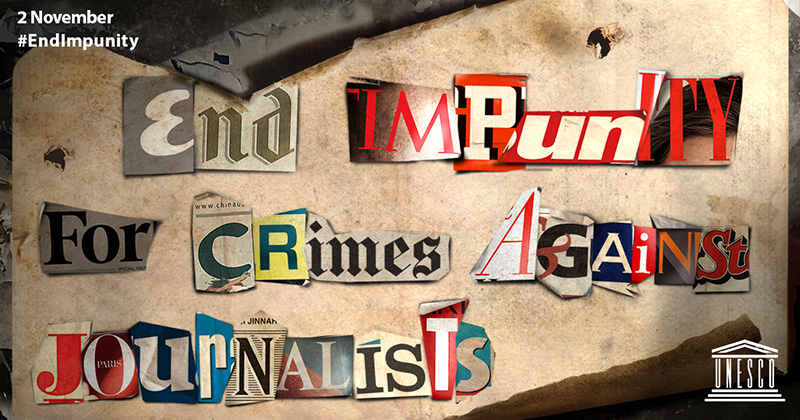
Investigations and processing of attacks on journalists and media workers in Bosnia and Herzegovina
Sarajevo, 01.11.2020. – November 2 is celebrated all over the world as International Day to End Impunity for Crimes against Journalists, and in Bosnia and Herzegovina that date is greeted with an unchanged situation compared to previous years. Frequent threats to media freedoms, pressures, threats and open attacks on journalists and other media workers are present in the daily life of Bosnia and Herzegovina, and concrete progress hasn’t been made regarding the adequate processing, sanctioning or prevention of these phenomena.
Although journalists, media workers and professional associations warned of the need for a more adequate solution to the legislative framework, which would make the prosecution of those responsible for threats and attacks on journalists more efficient, there was no reaction from the competent legislatures. At the same time, omissions in compliance with existing laws were pointed out, and numerous threats and attacks on journalists and media workers went unpunished.
Representatives of the profession are particularly concerned about the increasing incidence of online violence, and the growing number of threats that journalists receive through social networks and in comments on Internet portals. The perpetrators of such threats generally go unpunished.
According to the data of the Association “BH Journalists”, from the beginning of 2018 to October this year, 143 cases of violation of journalists’ rights were recorded, including physical attacks and threats.
58 cases of violations of journalists’ rights in 2018 were recorded through the Free Media Help Line within the Association “BH Journalists”, including six cases of physical attack, 17 cases of threats and nine cases of political pressure. In 2019, the Association of „BH Journalists“ recorded 56 cases of violations of journalists’ rights, including nine cases of physical attacks, 21 threats, of which eight death threats and ten cases of political pressure. Since the beginning of 2020, 29 new cases have been registered. In 2019, the institution of the Human Rights Ombudsman received 18 complaints from journalists, compared to nine in 2018.
Previous case law, when it comes to prosecuting attacks, has resulted in a sense of insecurity and insecurity among journalists and media workers in BiH.
Attacks on journalists in BiH – investigations and proccessing
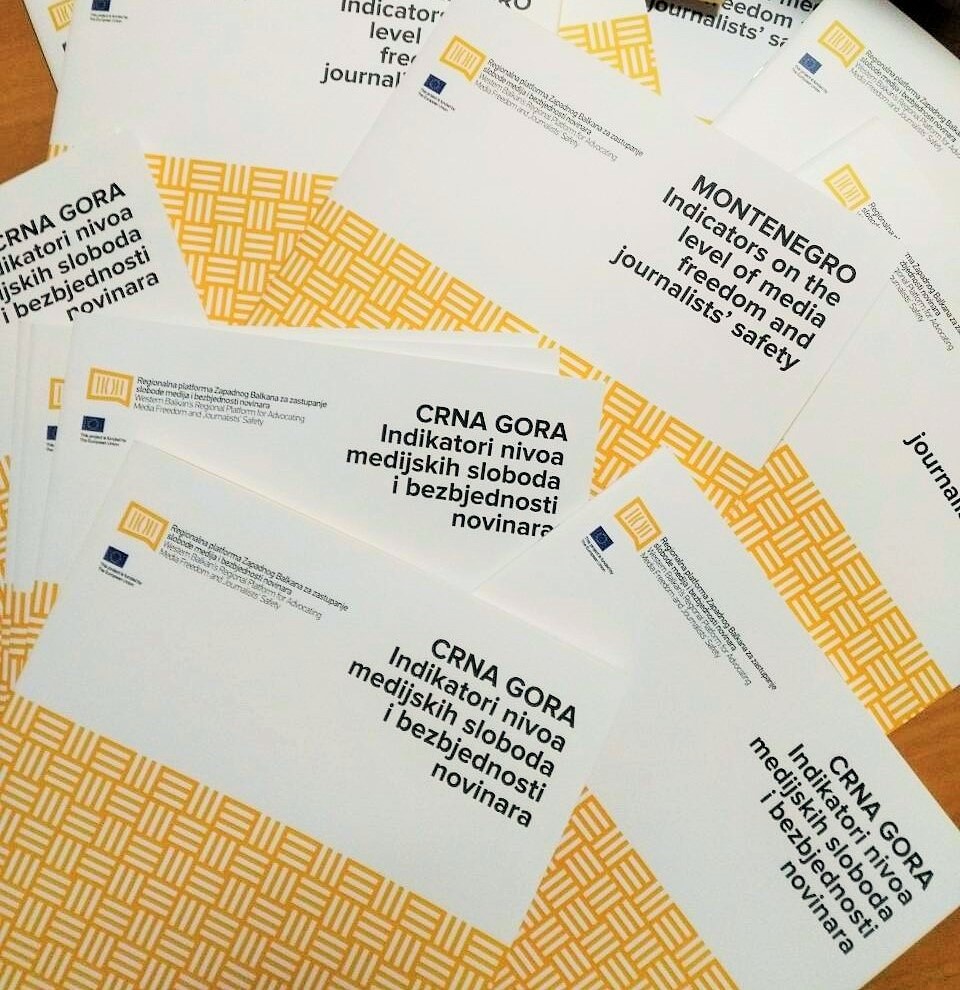
Full report, Indicators on the level of media freedom and journalists’ safety 2019 [MONTENEGRO]
This research represent the findings set out in the fourth survey, conducted within the framework of the project “Regional Platform for the Western Balkans for the Promotion of Media Freedom and Security of Journalists”, outlines the situation in these areas in Bosnia and Herzegovina, Kosovo, Macedonia, Montenegro and Serbia.
The main goal of the fourth survey is to identify new developments and to compare the level of media freedom and security of journalists identified in 2016, 2017 and 2018.
The authors of the report for Montenegro, done for the needs of the Trade Union of Media of Montenegro, are Marijana Camović and Bojana Laković Konatar.
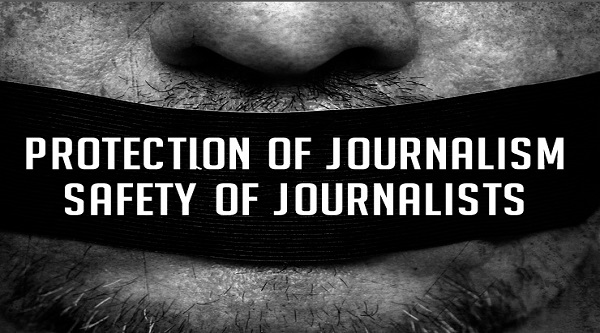
Freedom of expression and media pluralism during state of emergency
Although freedom of expression may be restricted, if the restriction is necessary to protect public health, among other things, then this must be done in a manner adequate to a democratic society, without interfering into the substance of the guaranteed right to timely and truthful information.
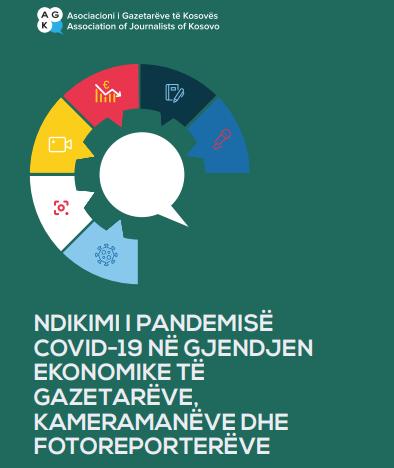
The Impact Of Covid-19 Pandemic On The Economic Situation Of Journalists, Cameramen and Photojournalists
The Association of Journalists of Kosovo (AJK) in partnership with the Kosovo Foundation for Open Society (KFOS), today, on October 27th, published the research “The Impact Of Covid-19 Pandemic On The Economic Situation Of Journalists, Cameramen, and Photojournalists”.
The report is conducted by researcher Lirika Demiri and focuses on the dismissal and reduction of journalists’ salaries, the impact of the Emergency Package on the media sector, and the physical and mental well-being of the media workers during the period of COVID 19 pandemic.
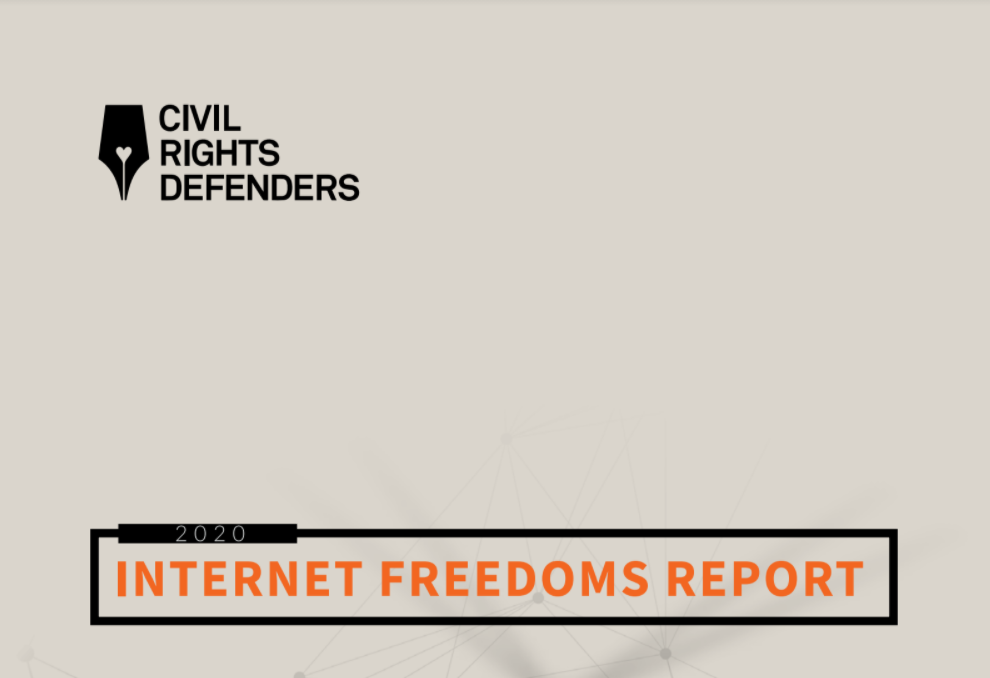
INTERNET FREEDOMS IN THE WESTERN BALKAN REGION
Governments in the Western Balkans have continuously jeopardized the right to freedom of expression by shutting down media outlets, social movements’ pages and intimidating individual activists online. Furthermore, there is a growing tendency of introducing legislation aimed at censorship of online content. There are also rising concerns in terms of surveillance and lack of efficient personal data
protection of citizens. Such measures limit and restrict civic participation and undermine the very foundation of democracy.
